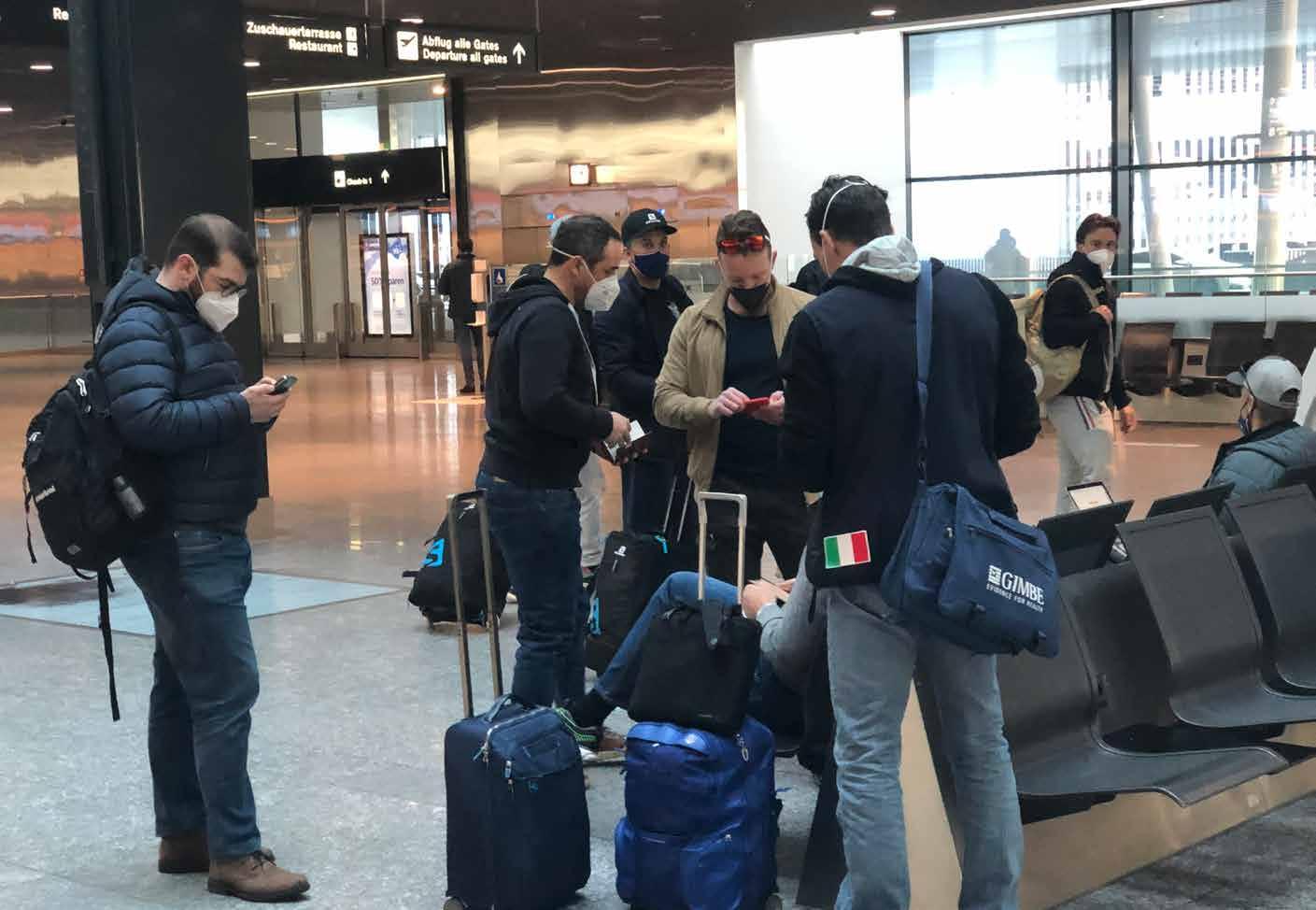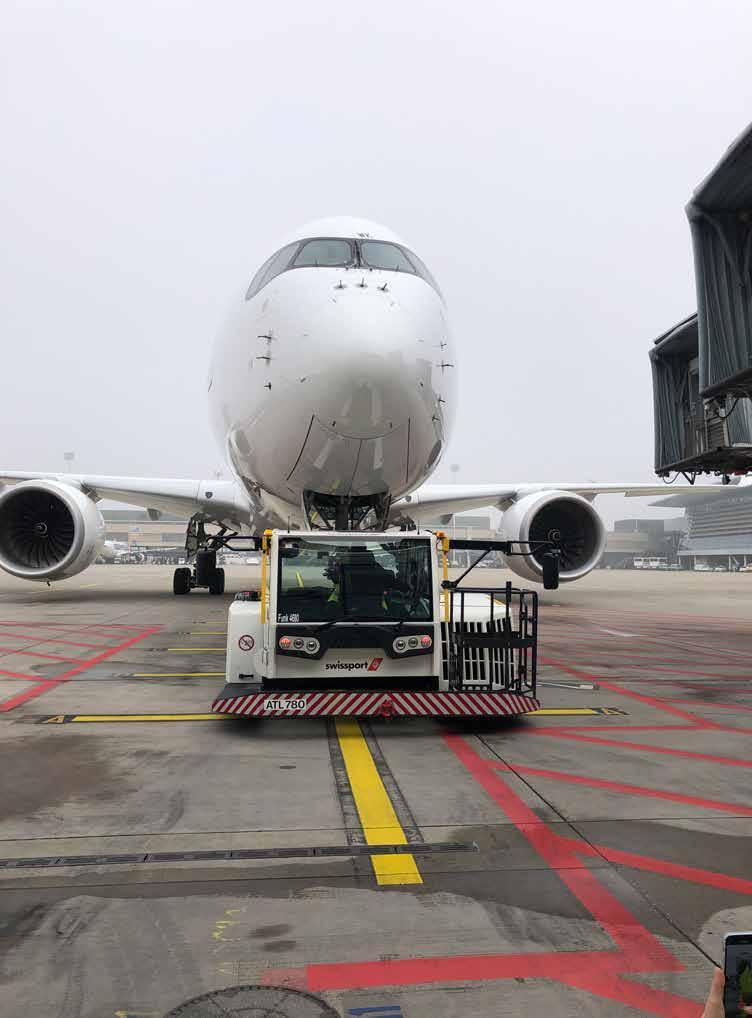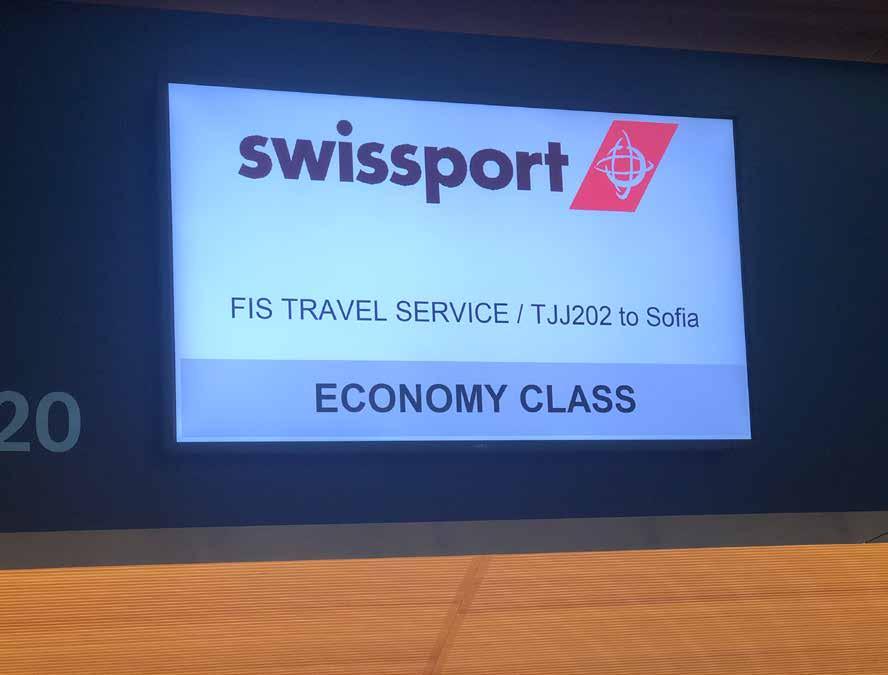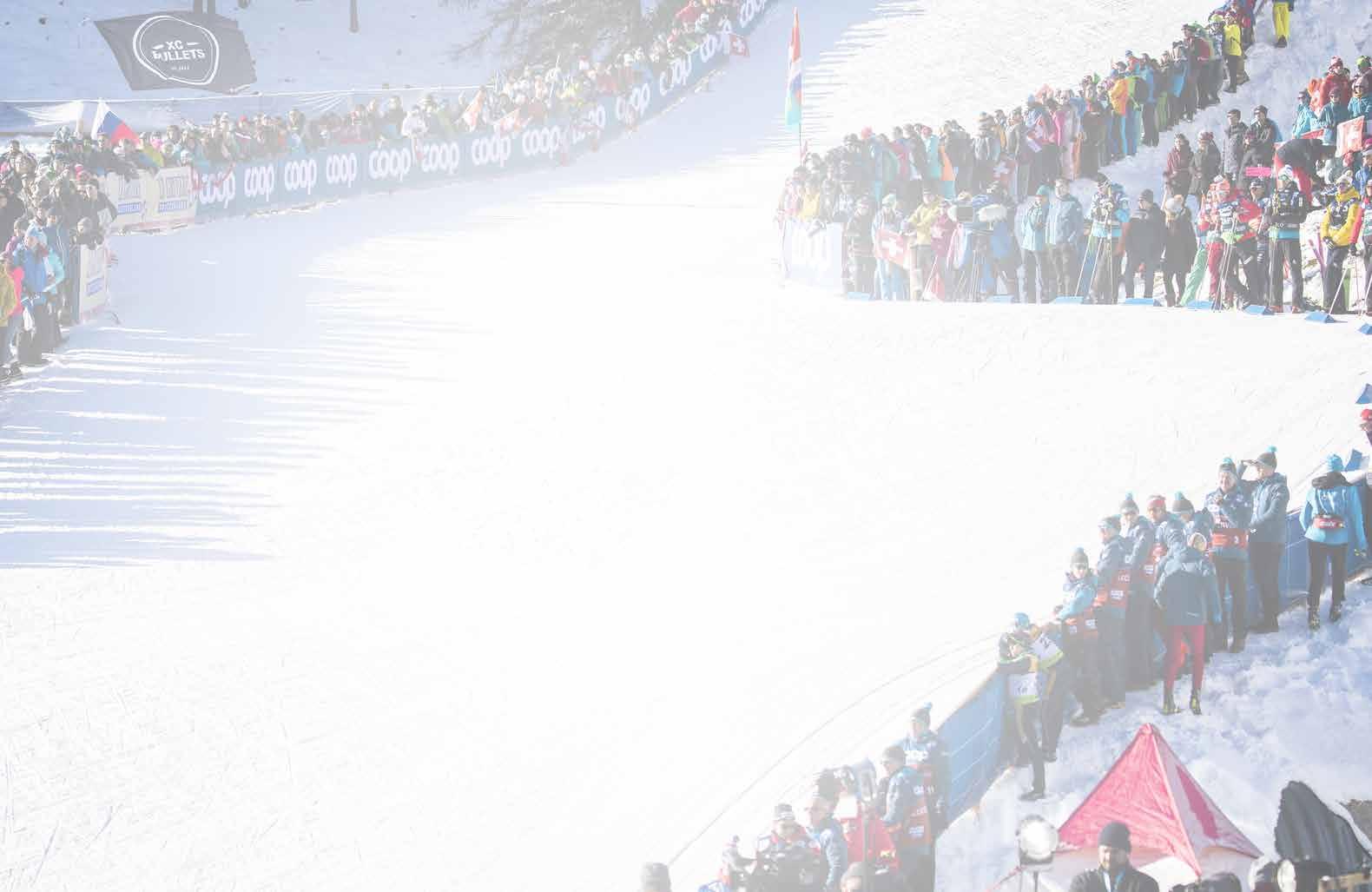
6 minute read
FIS Passport tackles Covid 19 head-on
from FIS Bulletin 2021
by FIS
by Dimitrije lazarovski
Due to the Covid-19 global pandemic, several events were cancelled at the end of the previous competition season. Season 2020/21 started with these unfavourable conditions still a factor.
Advertisement
In order to safeguard the 2020/21 competition season, and prevent further event cancellations, FIS established the Covid-19 Medical Support group, which has worked very closely with FIS staff.
As a result of the collaborative work, FIS published several documents at the beginning of September 2020:
• FIS World Cup Risk Management Covid-19 Testing Protocol • FIS Covid-19 Prevention Guidelines • FIS Covid-19 Media Guidelines • FIS Covid-19 Ceremony Guidelines • FIS Covid-19 Protocol – How to deal with persons with a previously diagnosed Covid-19 infection
Alongside publishing these documents, FIS delivered two webinars about Covid-19, with all stakeholders, National Ski Associations and teams given the opportunity to learn about the newly established measures and requirements for the upcoming competition season. In addition, the youth and children seminar, which was delivered in October 2020, featured “Solutions for Integrating Covid-19 Measures” as its main topic.
Furthermore, in addition to the webinars and seminars, FIS developed the FIS Passport App in order to further support all stakeholder groups involved in the delivery of FIS World Cup and World Championships events. The Covid-19 FIS Passport is a database
and test management portal for registered individuals and provides information to Local Organising Committees (LOCs) to help streamline the accreditation process for individuals participating or attending summer FIS events. The FIS Passport App was opened for registration from 19th October 2020. Over the competition season, more than 12,000 users were registered and all have used the FIS Passport App. During the season, the results of more than 100,000 polymerase chain reaction (PCR) and antigen tests were uploaded into the FIS Passport App.
The main goal of this programme was preventing and safeguarding the delivery of over 200 FIS World Cup and World Championships events. In this respect, it’s important to mention that LOCs registered only 105 positive cases. More detailed information regarding the recapitulation per FIS Disciplines can be found in the table below:
reCAPItUlAtIon Per FIS dISCIPlIneS
FIS discipline FIS Passport reported Positives on-Site
Cross-Country Skiing Ski Jumping Nordic Combined 4 148
4 170
1 042
Combined Events (Nordics) 2 824
Alpine Skiing Snowboard 16 528
4 017
Freestyle Skiing WSC 5 771
58 692
WJC
total
6 408
103 600
4
13
5
5
22
7
13
32
4
405
recapitulation per FIS disciplines
The percentage relationship between positive cases and total number of performed tests during the entire season was 0.101%. Based on that result, FIS, together with the LOCs, enjoyed success in organising a safe environment for event delivery during the Covid-19 pandemic.
Covid-19 medical support groups, together with FIS staff, are updating the protocols, guidelines and measures for the coming summer events and the 2021/22. Invaluable for this process is the data collected from surveys of all stakeholder groups. The winter edition of the protocols, guidelines and measures will be prepared by the end of August 2021.
FIS will continue overseeing Covid-19 pandemic development, in order to support all stakeholder groups involved in the delivery of FIS World Cup, World Championships and Continental cup events, having athletes’ safety as a top priority.
FiS MarkETing ag uPDaTE

by Olaf kühlenborg and andi Marugg
SuSTainabiliTy MuST bE ThE FOcuS
The Covid-19 global pandemic impacted the entire 2020/21 winter sports season and created a host of economic and organisational consequences. Nevertheless, FIS continued to be a reliable partner to all stakeholders. Across all disciplines (Alpine, Ski Cross and Nordic) FIS and its organisers were able to implement on average almost 81 per cent of all planned World Cup events.
Despite the many challenges created by the Covid-19 pandemic, FIS World Cup events had much to offer. FIS Marketing AG (FISMAG) had teams present on the ground at every race during the season. The level of media and audience interest in FIS events continued at a high level, although internationally the degree of interest in the top winter sports events and disciplines did vary from country to country. Digital media coverage and interest across the various winter disciplines continued to grow steadily.
Generally, and notwithstanding the negative impact of the Covid-19 crisis, the FIS partners were positive about the past season.
One highlight of last season was the FIS Ski Flying World Championships in Planica (SLO). Unlike the World Cup finals in March at the same venue, the World Championships in December were held as an evening event. There was plenty of exciting and fair competition, with interesting duels between athletes from Germany and Norway for many of the gold medals on offer. The TV ratings, as well as the feedback from sponsors, were very positive.
During the Championships FISMAG tested virtual advertising (using Parallel Ads technology) by having it included in the live production. The results were very promising and FISMAG will discuss this technology further with stakeholders including FIS and the European Broadcasting and sponsors.
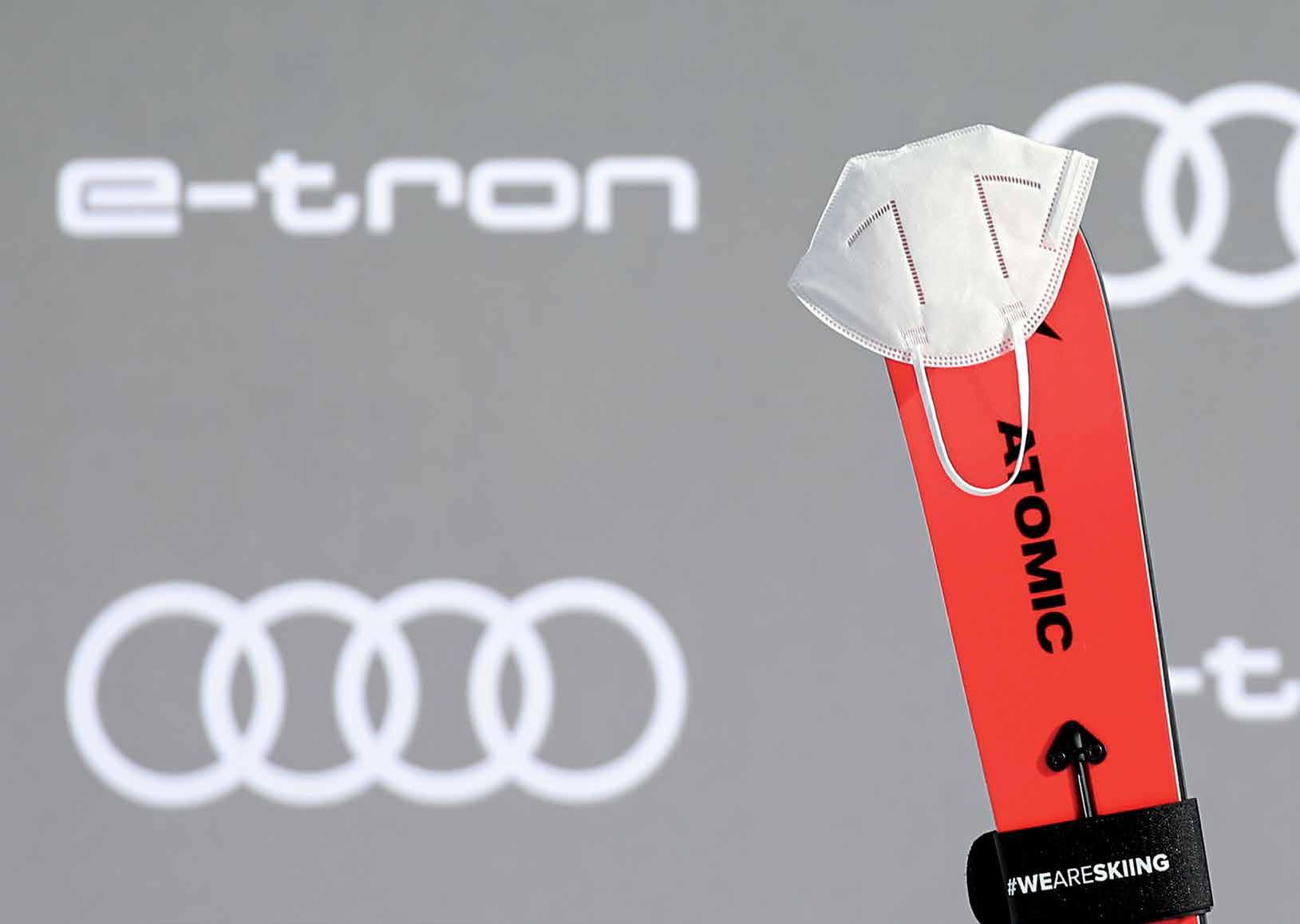


History was made last season with the world premiere of the FIS Women’s Nordic Combined World Cup. Due to the Covid-19 related cancellations of events in Lillehammer (NOR) and Otepää (EST), only the event in Ramsau (AUT) went ahead. Credit to the organisers, who thankfully stepped in to enable the event to be held in December 2020.
OuTlOOk
Prior to the Covid-19 crisis, a topic of importance in winter sports had been placed on the agenda: sustainability. Winter sports are being affected by global warming more than most sports. Various surveys of, and discussions with, sponsors confirm that this topic is impacting their decision-making processes. Accordingly, sustainability, as well as the environment, gender equality and public health, are very important topics for FIS partners. In view of these key insights, all those involved in the industry should focus even more intensively on the question of how winter sports can be made more sustainable.

FiS TravEl SErvicE ag

by caroline ris
The turbulent times resulting from the Covid-19 global pandemic significantly affected all aspects of the 2020/21 season.
All training camps in August-September 2020 in the southern hemisphere fell victim to Covid-19. Travel to countries such as Argentina or Chile was not possible.
The big shock followed in November-December 2020, when all races of the Audi FIS Alpine World Cup in the United States and Canada were cancelled.
Despite massively restricted air traffic, FIS Travel was able to organise some charter flights from Levi and Kuusamo (FIN), Zagreb (CRO), Bansko (BUL) and Are (SWE).
FIS Travel is hoping for the best during the next few months. The Argentine Government and its Ministry of Health are doing everything possible to allow national ski teams to hold training camps in Ushuaia (ARG) over the 2021 summer season.
With an eye on November 2021, FIS Travel is looking forward to positive developments across the world in the fight against the pandemic (a decrease in new infections, high numbers of vaccinations administered, etc.), so that normal ski activities across the world can resume as soon as possible.


